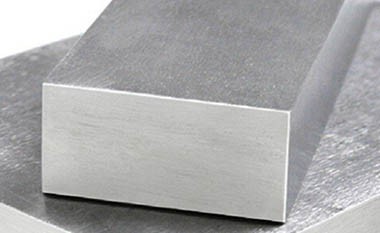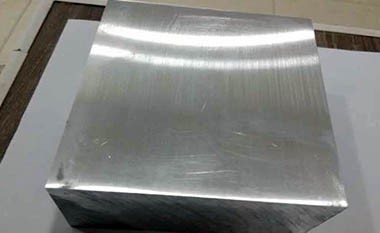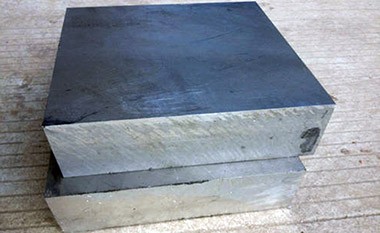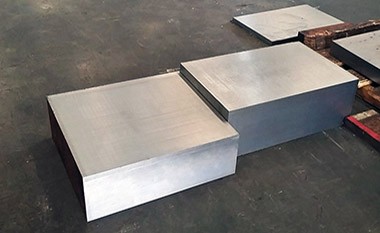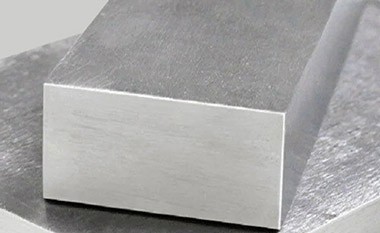Forged aluminum block
Forged aluminum blocks are aluminum alloy block materials made through the forging process, featuring excellent mechanical properties and workability. The manufacturing process typically involves heating the aluminum alloy material to a certain temperature and then shaping it through hammering or pressing, followed by cooling and heat treatment to enhance its strength and toughness.
Forged aluminum blocks are widely used in various fields, such as electronics, machinery, molds, and precision machining.
HC Aluminum is a leading manufacturer of high-quality custom forged aluminum blocks for various industries, specifically serving the oil and gas, aerospace, medical, chemical, and food processing sectors. Our custom forged aluminum blocks offer high strength, ductility, and ease of processing. Parts made from forged blocks perform well in high-pressure and high-wear applications.
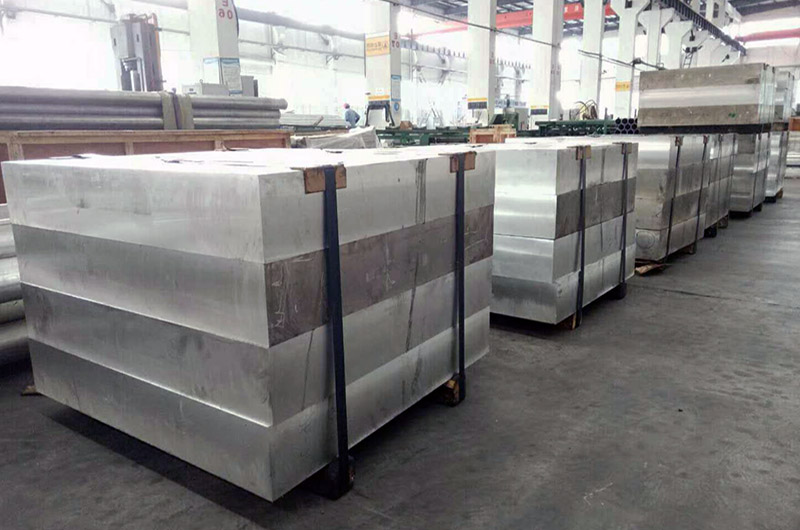
HC Aluminum Provides Forged Aluminum Blocks
| FORGING | Open Die Forging |
| ALLOY | 2219, 2618, 2B50, 2A50, 2A70, 2A80, 2D70, 2A14, 2014, 2A11, 2A12, 2024, 5A90, 3A21, 4032, 5210, 5A02, 5A03, 5083, 5A05, 5A06, 6A02, 6061, 7A04, 7B04, 7A09, 7075, 7050, 7A19, 7A10 |
| STANDARD | ASTM B247, AMS standards (AMS 4107, AMS 4108, AMS 4126, AMS 4127, AMS 4131, AMS 4133, AMS 4134, AMS 4139, AMS 4140, AMS 4141, AMS 4143, AMS 4144, AMS 4145, AMS 4146, AMS 4147, AMS 4248, AMS 4323, AMS 4333) |
| MAX. WEIGHT | ≤ 9T |
| MAX. DIMENSION | Length ≤ 7000mm, Width ≤ 2000mm, Height ≤ 500mm |
| Available Temper | 0, F, H112, T3, T4, T5, T6, T62, T652, T73, T74, T7452, T852 etc. |
| Other Forged Products | Complex Shapes, Bars, Step Shafts, Eccentric Shafts & Rotor Shafts, Hollows, Hubs & Tooled Forgings, Forged & Rolled Rings, Semi-Closed Die, Discs & Blanks etc. |
| Customized Service | We can provide customized services according to customer needs, welcome to consult! |
Advantages of Forged Aluminum Blocks
1. High Strength
During the forging process, the grain structure of aluminum is refined, significantly enhancing the strength and toughness of the aluminum block. Smaller grains can more effectively impede crack propagation, thereby improving the overall strength of the material.
2. Excellent Mechanical Properties
Forged aluminum blocks typically exhibit superior fatigue strength and wear resistance, making them suitable for high-load applications. This outstanding mechanical performance has led to their widespread use in aerospace, automotive, and machinery sectors.
3. Good Machinability
Forged aluminum blocks have good cutting performance, making them easy to machine. This facilitates more efficient subsequent precision processing, allowing for the easy creation of complex-shaped parts that meet various design requirements.
4. Lightweight
Due to aluminum's low density, forged aluminum blocks can effectively reduce the overall weight of products. This feature aligns well with the demands of modern lightweight design, especially in aerospace, automotive, and sports equipment fields.
5. High Strength and Rigidity
The dense internal structure of forged aluminum blocks provides superior mechanical properties compared to cast aluminum blocks, allowing them to withstand higher loads. This makes forged aluminum blocks particularly effective in applications requiring high strength and rigidity, such as aircraft structural components and automotive chassis.
6. Good Corrosion Resistance
Aluminum has excellent corrosion resistance, and forged aluminum blocks can maintain stability in many environments. This corrosion resistance makes them suitable for marine, chemical, and other corrosive environments.
7. Heat Treatability
Forged aluminum blocks can undergo heat treatment (such as aging treatment) to further enhance their strength and hardness. This flexibility allows the aluminum blocks to optimize their performance under different usage conditions, meeting specific application needs.
8. Economic Efficiency
Although the initial costs of the forging process may be high, the excellent performance of forged aluminum blocks can reduce maintenance and replacement costs in the long run, making them economically viable.
Forging Process of Aluminum Blocks
1. Aluminum Ingot Preparation
First, aluminum alloy needs to be melted to form aluminum ingots. Commonly used aluminum alloys include 6061, 7075, and 2024. These alloys are widely applied due to their specific properties, and during the melting process, strict control of composition is necessary to ensure that the aluminum ingots have consistent chemical composition and physical properties.
2. Heating
Before forging, the aluminum ingots need to be heated. The heating temperature typically ranges from 350°C to 500°C, aiming to enhance the plasticity and machinability of the aluminum. Within this temperature range, the strength of the aluminum alloy decreases while ductility increases, facilitating subsequent forming processes. Additionally, uniform heating helps reduce thermal stress, improving the consistency and reliability of the final product.
3. Forging
The heated aluminum ingots are sent to a forging machine, where they undergo forging under high pressure. The primary forging methods are:
- Free Forging: The aluminum ingot is processed outside the mold, allowing for significant shape changes, suitable for large or complex parts.
- Closed Die Forging: The aluminum ingot is processed inside the mold, achieving higher dimensional accuracy and surface quality, suitable for the mass production of standard parts.
During the forging process, the applied pressure shapes the aluminum material within the mold, minimizing internal defects such as bubbles and inclusions. A key aspect of this stage is ensuring that the temperature and pressure during forging are uniform to achieve optimal mechanical properties.
4. Cooling and Heat Treatment
After forging, the aluminum block needs to be cooled. This process can be natural cooling or achieved through water or oil cooling, and the cooling rate must be controlled to prevent internal stresses. After cooling, the aluminum block typically undergoes heat treatment to further improve its mechanical properties and microstructure.
The heat treatment process includes:
- Aging Treatment: By controlling the temperature and time, the distribution of alloying elements in the aluminum alloy is made uniform, enhancing its strength and hardness.
- Annealing Treatment: This is used to reduce the hardness of the material and improve its machinability, making it suitable for subsequent processing needs.
Applications of Forged Aluminum Blocks
1. Electronics Industry
In the electronics industry, forged aluminum blocks are widely used to manufacture heat sinks, enclosures, and other electronic components. The excellent thermal conductivity of aluminum makes it an ideal choice for heat dissipation applications, effectively dissipating heat generated by electronic components and ensuring that devices operate within a safe temperature range. Additionally, the lightweight nature of aluminum helps reduce the overall weight of electronic products, enhancing portability and user experience.
2. Machinery Industry
In the machinery industry, forged aluminum blocks are used to produce high-strength mechanical parts, such as gears and bearing housings. In applications requiring high load-bearing capacity, forged aluminum blocks meet the stringent performance requirements of machinery with their superior strength and rigidity. These components are often used in heavy machinery, engineering equipment, and high-performance power transmission systems.
3. Mold Manufacturing
Forged aluminum blocks also play an important role in mold manufacturing, especially in the production of mold bases, such as injection molds and stamping molds. The excellent strength and wear resistance of aluminum enable it to withstand high-frequency usage, and it is easier to form fine details during mold processing. Furthermore, aluminum's excellent thermal conductivity can enhance efficiency during the heating and cooling processes of molds, thereby speeding up production cycles.
4. Precision Machining
In high-tech industries such as aerospace and automotive, forged aluminum blocks are widely used to manufacture critical components, such as structural parts and assemblies. Due to the high material performance requirements in these fields, the high strength, good fatigue performance, and corrosion resistance of forged aluminum blocks make them an ideal choice.
Forged aluminum blocks, with their excellent physical and mechanical properties, have become indispensable materials across multiple industries. Whether in electronics, machinery, mold manufacturing, or high-tech aerospace fields, forged aluminum blocks play a significant role in supporting the high performance and reliability of various products.
Frequently Asked Questions about Forged Aluminum Blocks
| Question | Answer |
| 1. How good is forged aluminum? | Forged aluminum is known for its excellent mechanical properties, including high strength-to-weight ratio, enhanced fatigue resistance, and improved toughness. |
| 2. Is forged aluminum stronger than billet? | Yes, forged aluminum is generally stronger than aluminum billets due to the refining of its grain structure during the forging process. |
| 3. Does forging aluminum make it stronger? | Yes, forging aluminum enhances its strength by aligning the grain structure and eliminating internal defects. |
| 4. What is the difference between aluminum and forged aluminum? | The main differences include: |
| Manufacturing Process: Forged aluminum is shaped through deformation under pressure, while aluminum can be produced via casting, extrusion, or rolling. | |
| Mechanical Properties: Forged aluminum typically has superior strength and toughness. | |
| Applications: Forged aluminum is used in high-performance applications, while standard aluminum is used in a broader range of applications. |

